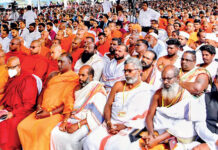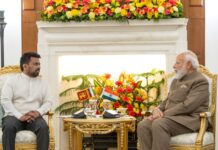Dr. M. C. Rasmin.
Natpu – Friendship is a collection of Tamil short stories written by Dikwella Zumri. This collection includes 30 stories, 29 of which were published in Vidiwelli, a Tamil weekly published by Express Newspaper Ceylon Limited, over a decade starting in 2014.
Zumri is a notable contributor to Tamil literature from Southern Sri Lanka, following in the footsteps of figures like M. H. M. Shams and Dikwella Kamal, who were known for their affiliations with Sinhala writers, and Dikwella Shafwan, his teacher. Zumri, a native of Dikwella, represents the next generation of writers from this region.According to Dikwella Kamal, Zumri is a fourth-generation writer in their community. Kamal notes in his introductory chapter that Zumri exhibited creative talent from a young age during his time at Minhath Maha Vidyalaya. In 1981, Zumri won first prize in a short story competition organized by the Ministry of Education, catching the attention of senior writers. He not only wrote short stories but also engaged in other forms of creative writing. From early schoolhood, he established himself as a leader in creative literature, excelling in reading and performance. Recognized for his talent, Zumri was appointed editor of the school magazine Thennamutham, marking a turning point in his writing career. Kamal emphasizes that Zumri’s ability to communicate and maintain relationships with people beyond his community was a significant aspect of his growth as a writer.
The Sri Lanka Broadcasting Corporation (SLBC) played a crucial role in providing Zumri with a platform. Although he initially gained popularity for his short stories, it was radio that significantly influenced his career. He became well-known for his radio dramas and satire, using comedic narrations performed by radio artists to highlight community issues. Zumri wrote nearly 300 radio dramas for the SLBC Muslim service until recently. In 2022, he won an award for the best radio drama script from the Department of Culture, which encouraged him to continue writing. His radio dramas have been studied and used for research by university students for their bachelor’s degrees.
M. A. Mohammed, one of the pioneers of the SLBC Muslim service and Zumri’s uncle, was an early contributor to Islamic religious programming on radio. Zumri’s family had a strong background in writing, with his mother being a talented singer at family events. Inspired by M. A. Mohammed, Zumri recognized the power of radio as a medium, even though M. A. Mohammed did not favor him because of the family connection.
Friendship primarily represents the cultural life of Southern Muslims in Sri Lanka. Traditional reviews often analyze short stories based on character development, plot, conflict, and creative expression. However, in my opinion, this traditional approach has lost its relevance in the digital age, where recent writings and a community of critics have shifted focus to the aesthetic impact a story creates in the reader’s mind. Therefore, this review will not follow the traditional pattern but will highlight what I appreciated about Zumri’s stories in this collection.
Zumri began writing short stories in the 1980s, but stories published before 2014 are not included in this collection. Friendship primarily contains stories of an older generation. Zumri creatively captures the Southern Muslim community and its institutions, including masjids and the people involved in religious activities. He challenges myths, unethical community practices, detrimental power dynamics, and the emotional struggles of economically weak individuals. Throughout the collection, Zumri confronts local leaders, including politicians, masjid trustees, and economically powerful individuals, who undermine the less affluent and voiceless members of the community.
The first story, “Mutraththu Mallihai” (Jasmine in Our Yard), exemplifies Zumri’s narrative style. It tells the story of a senior academic who launches a book with a local politician, one of his former students, as the chief guest. The elderly professor is flattered when the politician praises him as an intellectual figure of the region. Trusting the politician’s words, the professor asks him for a house in a new housing scheme in his village. Zumri powerfully depicts the politician’s cunning response, noting that he has other political commitments and does not even attempt to fulfill the professor’s request.
Zumri explains, “The politician is clever. He knows how to harvest two mangoes with one stone. In his speech, he not only praises his teacher, the professor, but also makes political points in his favor.” Similarly, the fourth story, “Manachcharivu” (Fallen Heart), depicts the cunning actions of a local politician who misleads a young administrative officer into relocating displaced people to a risky area instead of a safe one so he can build a hotel on the desired land.
Several other stories in the collection also highlight the struggles faced by writers. For instance, “Sarasari Mainthan” (An Average Man) tells the story of a businessman who discourages his father from writing books. The businessman, who later becomes the chief guest at his father’s book launch, praises his father publicly but discards all his father’s books in a dirty canal afterward. The story titled “Kalaiye Un Vilai Enna” is a poignant narrative about an elderly writer, despite his popularity outside, struggling at home due to financial weakness and trying to convince others through his speech at a friend’s book launch to garner support for his own book release.
In this collection, two stories focus on the lives of middle-class office workers and an imam (religious leader) responsible for performing religious activities at masjids. The second story, “Laptop,” and the 27th story, “Pilaiththupona Perunal Kanakku” (Disappointed Festival Budget), exemplify the struggles of a middle-class worker and an imam, respectively. “Laptop” portrays a middle-class office worker from a decade ago struggling with his monthly salary, which is insufficient to support his family. He buys a laptop for his son, but it breaks while he rushes to catch the train. Zumri vividly captures the pace of daily life for a worker commuting to Colombo. “Disappointed Festival Budget” tells the story of an imam who is denied his expected earnings because the masjid had little income due to COVID-19 and fewer people attending prayers during the festival month. Despite his disappointment, the imam does not want to return home empty-handed to his daughter, who longs for a laptop for her higher education. Fortunately, someone who understands the imam’s plight gifts him a laptop.
Many stories in this collection depict the plight of parents who are either isolated or living in the country while their children abroad fail to understand their emotional needs. The story “Iruthippayanam” (The Last Journey) reflects the reality of an elderly father who has long desired to perform Hajj, the Islamic holy pilgrimage, but is repeatedly disappointed by his children. Those who offer to help have ulterior motives of stealing his property. Eventually, the father decides to sell his property, perform Hajj, and buy a small house for himself and his wife. Two other stories portray fathers with good intentions for their children, but their desires are misunderstood. In “Facebook,” a father lies on his deathbed while his wife and daughter contemplate whether they will receive a larger insurance payout if he dies or remains alive. Another story, “Arundu Pona Viluthuhal,” narrates the heartache of a father who, after losing his wife, lives alone. When he proposes remarrying, his children destroy his hopes.
In “Panangkoththipparavai,” a daughter finds herself unable to support her father because her husband disapproves. However, when her uncle is hospitalized, her husband tries to use the opportunity to transfer all the uncle’s properties to himself, only for the uncle to pass away before the lawyer can finalize the transfer.
“Irandam Sutru” (The Second Round) is another story that explores the expectations placed on parents by their children living abroad. Despite sacrificing their own time, parents continue to do everything they can for their children. The story “Thayin Kaaladiyil” creatively highlights the neglect an elderly mother faces from her children, especially her wealthy son. In “Iralmeenkal,” Zumri powerfully expresses the hypocrisy of religious leaders in masjids who claim to protect religion while failing to practice its values. In this story, a Muslim girl, the daughter of a local refugee, marries a Sinhalese boy. The masjid committee, along with many who pretend to uphold religious values, attempts to ostracize the girl and her father. However, a revolutionary youth named Faizal challenges the community’s hypocrisy, arguing that when the community fails to provide economic opportunities, food, and shelter, they have no right to regulate the girl’s actions.
Two stories, “Thirupuppam Thanda Perunal” (Festival of Surprises) and “Pilaiththupona Perunal Kanakkukal,” highlight the challenges faced by imams who work for masjids but struggle to live normal lives due to inadequate finances. In these stories, the imam does not own a house and is frustrated by his job, which does not provide a fair income. Despite these struggles, the masjid committee lacks empathy for his financial situation, failing to provide a meaningful salary. These stories explain why many imams continue to work for masjids—they see value in providing religious guidance.
The story “Nonbu Hadiya” (Ramadhan Gift) is another powerful piece that depicts how a widow, who lived a stable life when her husband was alive, is repeatedly overlooked by the masjid community during the festival period after Ramadan. Fortunately, a group of progressive women who understand her challenging situation eventually come to her aid. Most of the stories in this collection revolve around life struggles, financial burdens, and the desire to achieve reasonable goals in life. The story “Ore Kallil” (In One Stone) captures the persistence of a masjid trustee who repeatedly seeks to lead the masjid, despite the community’s disinterest, using his financial power to manipulate and dismantle the youth in his village.
The story “Sollatha Sohangal” stands out among the others in the collection. It portrays how poverty leads young people from poor families to make mistakes. A poor boy, desiring to buy a phone like his peers, resorts to stealing one from a masjid. The boy, realizing his mistake, plans to return it after using it for a few days. However, he is caught, which lands him in trouble. Zumri narrates this story in a way that reveals the underlying social issues.
Natpu – Friendship is a collection that captures various aspects of Southern Muslim culture, power struggles, the emotional impact of migration on parents, and the challenges faced by middle-class office workers and imams. Zumri’s ability to depict these struggles and present them in a relatable way makes this collection a valuable contribution to Tamil literature. His stories not only provide a mirror to society but also encourage reflection on the societal norms and practices that need re-evaluation. In this collection, Zumri has effectively used his storytelling skills to shed light on the human condition, particularly within the Southern Sri Lankan Muslim community.
Radio Inspiration
Zumri’s short stories evoke memories of his earlier radio dramas. Many of the stories have a structure reminiscent of radio drama, with scenes unfolding in a dramatic, episodic manner. The language he uses in his stories bears similarities to his radio writing, incorporating visual language, succinct explanations, emotive expressions, and a conversational tone that effectively reflects the characters’ emotions and situations.
For example, in a story depicting the plight of parents whose time is repeatedly demanded by their children living in different countries, Zumri writes, “Okay listeners, the first part of the interview ends here, and let’s begin the second part soon” (p. 27). This symbolic expression showcases the influence of radio on Zumri’s writing. Whenever possible, Zumri draws from people’s experiences with the radio medium and its influence. In his story “Iruthippayana,” he describes how Haj agents tactically convince people to perform the pilgrimage, narrating a typical radio commercial that might air on the SLBC Muslim service: “We are the number one agent in Sri Lanka. Twenty-five years of experience. Direct flight. Buffet food. Accommodation near the Haram Sharif” (p. 67).
Zumri concludes the story “Panangoththipparavai,” about a father targeted by his son-in-law for his property, with a dramatic, media-inspired line: “Anees never expected that the final stage of the filming would end with such an unanticipated finish.”
Language
Zumri displays his linguistic abilities and skill in conveying emotional crises with great finesse. In the story “Manachcharivu,” which deals with the aftermath of a landslide, he captures the struggle of an affected person with the words: “He could not utter anything further. His words were nondiyadiththana. Ramasami cried like a child” (p. 23).
In a story about a mother yearning for care from her children, particularly her son, Zumri encapsulates the son’s early life with poignant language: “When Izzadeen was a child, his father hand-washed his mother, and his hand got wet in a new place. Izzadeen didn’t have the maturity to investigate the reason for this. Even if he has it now, what is the use?”
In “Iraal Meenkal,” Zumri illustrates the shameful reaction of a mosque secretary toward a girl who marries a non-Muslim: “The secretary of the mosque committee was shaken. Rain started in his heart beyond his control” (p. 47).
In the story “Ore-Kallil,” Zumri describes the actions of progressive youth who take over mosque administration: “Youth who took over the mosque administration immediately jumped into action. They shifted the toilet, which many had anticipated. The ablution tank that had been crying started laughing. The tap facilities increased. A new system was implemented to manage wastewater. The religious school, Madrasa, which had been devoid of students, received a fresh look and was full of students. The half-completed upstairs work was finished. The tiles inside the mosque shined. The mimbar stage reflected Mughal architecture.” This is how Zumri visualized and expressed language.
Satire
Zumri has over 30 years of experience writing satirical narratives with music, often aimed at dismantling community myths, especially within the Muslim community. One such story, “Singapore Seeman,” portrays people being duped by an individual pretending to be from Singapore. He vividly describes how people fall into traps, expecting benefits from such frauds. The Singapore Seeman in this story collects money and disappears, leaving several people who, out of embarrassment, remain silent but had hoped to make him a groom for their daughters.
Two other stories in this collection, “Kalyanamaam Kalyanam” and “Kolumbuk-kalyanam,” are particularly interesting and highlight the experiences of ordinary men who meticulously prepare for weddings in Colombo. In the first story, the protagonist is unable to eat due to delays and is left disappointed after much preparation for the event. In the second story, he narrowly escapes after mistakenly attending the wrong wedding. Zumri brings his expertise in writing satire for radio to enrich his short stories.
Stories like “Vattilappak Koppai,” “Mr. Doriyan,” and “Odum Rayilil” reflect the characteristics of people who worked in Colombo. “Odum Rayil” captures the fun, joyful, yet challenging journey to Colombo, while the other two stories depict how a person tries to please his bosses by offering gifts like doriyan and vattilappan to secure positions. These stories unfold like short films, filled with curiosity and cliffhangers.
Co-existence
Zumri doesn’t overlook the theme of coexistence in his stories. The last story, Natpu – “Friendship,” is about two families—a Muslim and a Tamil family. The Muslim family is displaced on short notice during the war. Anwer, the son of a teacher who lived in Jaffna before the forced migration, returns to Jaffna after 30 years. He meets his father’s friend, Ravi Uncle, who has been living in their house. Upon realizing who Anwer is, Ravi Uncle says,
“I have been living in your house. My wife has passed away. I am living with my grandchildren. Anytime you can come and stay in your own house.”
The story ends with Ravi Uncle’s words flourishing like pearls, symbolizing purity and humanity.
The plots in general chosen by Zumri are solid, uncomplicated, easy to comprehend, and reflect elements we encounter regularly in our daily lives. Zumri’s talent for creating comic writing and radio drama has significantly influenced his linguistic visualization, story crafting, character development, use of language, and the ability to transform each story toward a powerful ending. The Tamil literary world eagerly anticipates more from Zumri.




